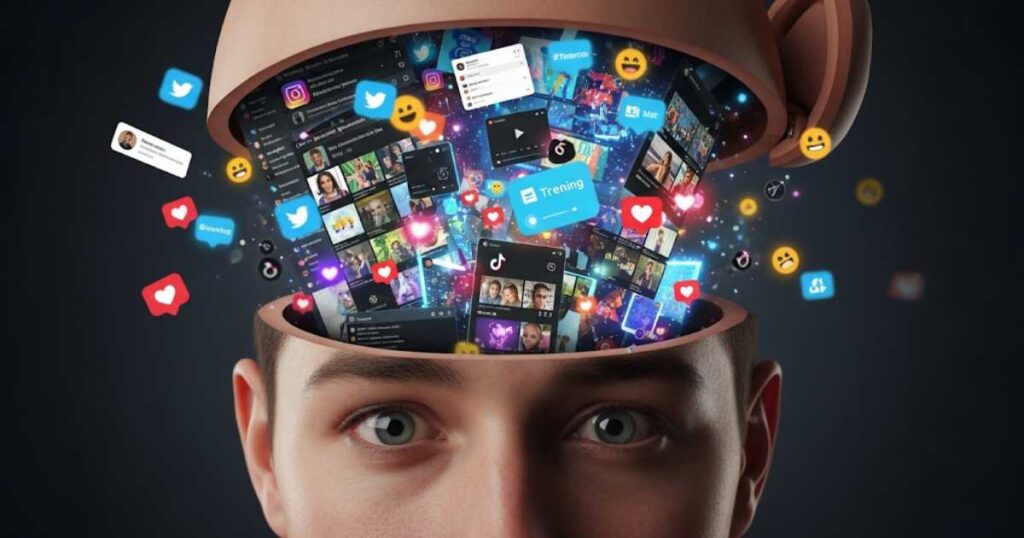Falling in love is a bit like joining a cult. You’re euphoric, a little irrational, convinced you’ve found the meaning of life, and everyone around you seems weirdly unenlightened.
The object of your affection becomes a walking poem. They could literally talk about socks for fifteen minutes, and you’d listen like they were narrating The Iliad.
But flash forward a year, or let’s be real, sometimes just three months, and suddenly that same magical person chews too loudly, repeats stories, and doesn’t quite get your jokes anymore. The spark dims. The butterflies retire.
And you’re left wondering: did I pick the wrong person, or is this just… love?
According to philosopher Alain de Botton, the real problem isn’t the relationship; it’s our expectations of it.
We’ve inherited a strange set of beliefs from romanticism, fairytales, Hollywood, and probably a few Lana Del Rey songs. We think love should be all-consuming, intuitive, and most of all, effortless.
We imagine that a truly compatible person will understand us without explanation, complete our sentences, and somehow intuit our deepest emotional wounds over brunch.
If love feels hard, we assume something’s gone wrong. But as de Botton wryly points out, love begins when infatuation ends, and that’s when most people panic and start Googling “how to know if you’re settling.”
In the beginning, our brains are soaked in a neurochemical cocktail: dopamine, norepinephrine, and oxytocin conspire to turn us into temporary lunatics.
This is nature’s brilliant, if slightly manipulative, way of pushing humans toward pair bonding. Everything about the other person feels significant. Their taste in music feels prophetic. The way they eat pizza feels intimate.
But we’re not seeing the real person, we’re seeing a carefully curated hallucination, one that’s been conveniently filtered through our unmet childhood needs, unresolved traumas, and possibly, a few Instagram aesthetics. It’s not love, it’s a well-lit projection.
That’s why the moment things get “boring,” many of us assume the relationship is broken. But boredom isn’t failure, it’s realism arriving, like a polite but inconvenient dinner guest.
You begin to see that the other person isn’t a flawless soulmate; they’re just a fellow human with emotional baggage, questionable socks, and a strangely intense relationship with garlic.
According to de Botton, this moment isn’t tragic. It’s sacred. It’s your invitation to build real love, not the falling kind, but the staying kind. The choosing kind.
One of de Botton’s most brutal but comforting truths is this: “Everyone is crazy. You just have to find someone whose insanity you can tolerate.” In other words, compatibility isn’t about finding someone perfect; it’s about finding someone whose weirdness doesn’t clash violently with yours.
The modern tragedy is that we don’t treat love like a skill; we treat it like a feeling. And feelings, as anyone with a decent hangover can tell you, are not always reliable indicators of truth.
This is where the psychology gets interesting.
According to attachment theory, our early relationships, usually with our parents, form blueprints for how we approach intimacy. If you’re anxiously attached, you might panic when your partner grows emotionally distant. If you’re avoidant, you might start pulling away the minute things get too real.
The boredom you feel might not even be boredom; it might be fear. The novelty is gone, and what’s left is vulnerability, which for most of us is terrifying. No wonder we prefer the thrill of a new crush; it’s easier to feel electric with someone who doesn’t yet know where we hide our emotional landmines.
But enduring relationships, the kind that actually shape us, ask us to stick around after the masks come off. They require us to explain ourselves. To apologise.
To listen when we’re not in the mood. To sit in the emotional discomfort of not being fully understood — and still stay. Real love is not a feeling; it’s a skill set. And like all skills, it’s learned by doing the thing badly, repeatedly, and not quitting.
Now, this doesn’t mean long-term love is supposed to be miserable. It just means it’s not supposed to be exciting all the time. The obsession with “keeping the spark alive” is often less about love and more about distraction, from boredom, from emotional work, from the reality that intimacy can feel a lot like… folding laundry together while discussing what brand of yogurt to buy.
And that’s okay. Intimacy is built in these tiny, mundane moments. The real spark isn’t in the passion — it’s in the trust, the rhythm, the slow-building sense of “you and me against the world, even if we’re both kind of annoying.”
If you’re wondering where the early magic went, it didn’t disappear. It just evolved. The early thrill was a beautiful lie your brain told you. But the quieter kind of love that comes later, the love that endures shared grief, awkward holidays, bad moods, and worse movies, that love is earned. And frankly, it’s more impressive.
Anyone can fall in love with a stranger over drinks and dim lighting. It takes courage to love someone who’s already seen you cry in your pajamas while holding a half-eaten muffin.
So yes, relationships start off exciting and become alarmingly normal. But that doesn’t mean they’ve failed. It means they’re real. And real love doesn’t scream. It doesn’t dazzle. It whispers: “I see you. I know you. I’m still here.” And that, surprisingly, is far less boring than it sounds.



